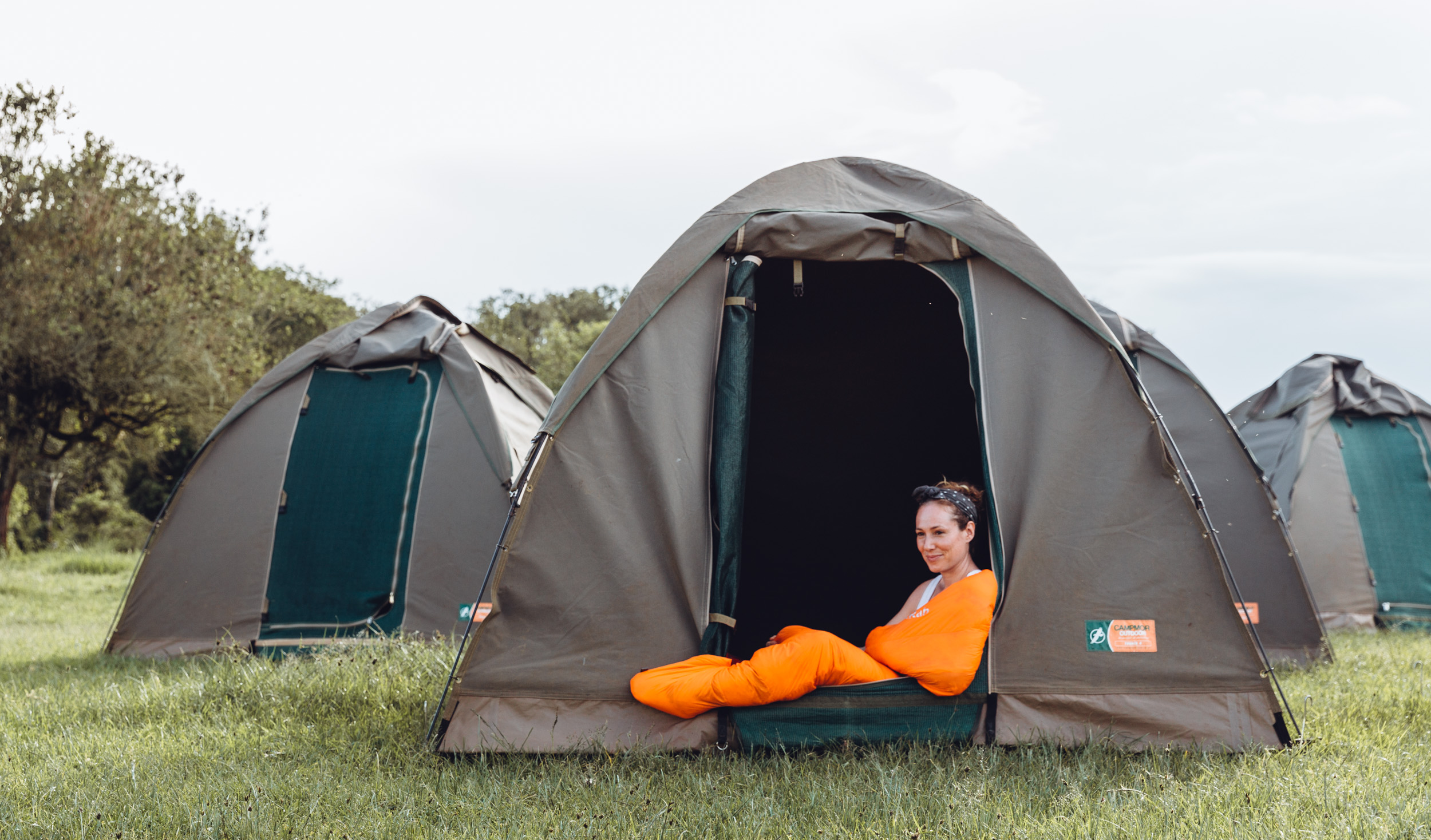As if planning a trip, sourcing the best travel insurance and worrying how to fit your life into a 40L backpack wasn't stressful enough, us girls have a whole heap of other things we have to worry about - especially if we plan on being out of the country for more than a couple of weeks.
Because, let's face it, life rarely goes to plan. Starting your period when you're in the middle of nowhere and with no access to tampons or meeting the man of your dreams but realising you've forgotten to pack condoms; both are very real concerns for a modern woman on the road!
This post hopes to ensure that you're prepared for every eventuality, minimises the chances that you're caught unaware, and above all puts your health right at the top of of the pile when it comes to planning your next adventure. After all, that's exactly where it should be.
pregnancy
I have no fewer than two friends who became pregnant whilst travelling with their boyfriends, and whilst those boyfriends are now husbands, and the pregnancies were welcome, I know that if this had happened to any number of other people, the news could have proved catastrophic.
For most of us, avoiding a possible pregnancy whilst travelling is something that needs to be prepared for.
It's a pain in the arse that this issue so often falls on to us girls, but until that miraculous male contraception pill comes on the market, or we can completely rely on men to think ahead and bring their own condoms, it's better to be safe than sorry.
Consider long-term forms of contraception:
Implant - I'm on this, and it's excellent! A little incision in my arm before I left for Mexico, and voilá - reliable contraception for no less than three years. And as an added benefit? In up to a third of women, your periods stop almost entirely, with only a very light occasional bleed. Of course, the implant is not suitable for everyone, and some women may find they actually bleed more often, but when it works, goddamn is it great.
Injection - if you're off on a trip lasting less than three months (the duration of action for one dose), then consider the Depo-Provera contraceptive injection. It's highly effective (99% chance of preventing pregnancy) but the common side-effects of irregular bleeding and weight gain can put some women off. Do note that as it is an injection, once it's in your system, it cannot be removed, and is therefore something that should be trialled before your trip.
The pill - there are so many different types of 'pill' to cover every type of woman (after all, despite having the same parts, we're all built a little different!), that finding one that suits you is usually possible. Some also have the added benefit of soothing menstrual pains, and with some packs being able to be run one after the other, can even be used to prevent a period happening at all (if you're off on a honeymoon for example, this might be worth its weight in gold).
Of course, with all of the above, not all types of hormonal contraception are suitable for everyone, and so you need to have conversation with your GP (who is aware of your full medical history) about which is best for you. Importantly, make sure they're aware that you plan on flying or sitting for long periods, as a number of these methods are associated with an increased risk of DVT (deep vein thrombosis).
If you're not currently in a relationship, condoms may well be your best defence against pregnancy. Just be aware that if you were to buy them whilst you're travelling, that not all condoms are created equal. Be sure to purchase a brand that you are familiar with, that you would buy at home. For example, in the UK, all condoms sold have to adhere to strict standards - if you're buying abroad, be sure to look for the BSI kite mark, and the CE mark on the packet. The best option? Bring some with you in the backpack.
Should the unexpected happen, and you do fall pregnant whilst travelling, you should be aware that most travel insurance companies will not cover you for claims resulting from an unplanned pregnancy.
STDs
If you're in a relationship, and you've both recently been tested, you probably don't need to worry about this - for everyone else, listen up!
A huge part of travelling is meeting new people, having fun and exploring new experiences. Worryingly for your sexual health however, that new experience may involve embarrassing dorm sex with that rather attractive German man you met on a pub crawl.
I'm not saying don't do it - in fact, travelling in your 20s is an excellent time for this sort of thing - just be safe; carry condoms with you (they are after all the only thing that, if used properly, virtually remove the chance of you contracting an STD). Gone are the days when girls will be frowned upon for having a 'johnny' in their wallet, so don't be afraid to whip it out of it looks like things are heading that way - better to have one handy early than forget and face the morning after fear.
Unfortunately, we all know that accidents can, and do happen. If you think (or you know) you've exposed yourself through unprotected sex, be sure to get yourself tested at the earliest possible opportunity - and don't have unprotected sex with anybody else.
periods
Unless you're one of the lucky, lucky ladies whose contraceptive choice removes all possibility of a period, your monthly cycle is something you really need to consider when packing your bag - especially if you're heading to Asia or Latin America, where tampons can be really tricky to get a hold of. Whilst this may not be of huge concern if you're only travelling for a few weeks, if you're away for months, carrying around 100 tampons is hardly practical. Trust me, I've tried!
For the long term traveller, options such as the Lily Cup from Intimina are a fantastic alternative. Made from medical grade silicon, they are re-usable, and can be worn for up to 12 hours (brilliant if you're on a long bus journey with questionable toilets!), and, in places where everything needs to go in the bin, not down a toilet, it's a much better choice for the environment.
It could also potentially save you a lot of money, as sanitary products often cost a lot more than at home. I've been aware of menstrual cups for some time now, but have only recently tried out Intimina's version - their tiny collapsable travel cup will now be coming with me on every trip (and, if you fancy taking one on yours, they're 15% off if you order before Christmas - click here to buy it now)
thrush
You've probably heard of thrush, but do you actually know what it is?
Also known as a yeast infection, symptoms of thrush include itching around your genitals and a thick white discharge (delightfully referred to as resembling cottage cheese - if any men have decided to read this far, sorry about that!). It's actually a pretty common medical condition, and if you haven't yet experienced it, well, statistically speaking, you will at some point!
But why am I discussing it in this post? The thing is, if you're taking anti-malarials (and for the love of God, if you're heading to a country where malaria is a problem, take the damn pills), it's important to remember that there are certain drugs (like doxycycline) which are very safe but tend to increase the likelihood of you developing thrush - especially if you're taking them for a prolonged period.
The good news is that this common complaint is very easy to treat, and that treatment is available over the counter in either a pill, pessary (pill inserted into your vagina) or cream. I always opt to carry a dose of Canestan in our medical kit because even though it can be found easily in most countries, if the symptoms of thrush happen to come on whilst I'm on a tiny island, in the jungle or up a mountain, I don't have to wait until I can get to a pharmacy.
Urinary Tract Infections
Urinary tract infection (UTI). Not the three little words that any woman wants to hear - especially when you're supposed to be having the time of your life.
Also known as cystitis, the symptoms of this rather common condition can have us practically chained to a bathroom and yet terrified to have to pee at the same time. Thankfully, a lot of cases will clear up on their own, but you should use simple, over the counter painkillers to reduce the discomfort (particularly the lower abdominal pain often associated with the condition) and drink plenty of fluids.
However, should you develop a fever, pain in your back, blood-stained urine or become generally unwell, you'll need to see a doctor for further treatment, including antibiotics.
If you have a history of recurrent UTIs, consider speaking with your GP about getting a course of antibiotics to take with you, so that you're always prepared. And always pack paracetamol or ibuprofen - you'll never know when else you might need them.
Whilst it can sometimes feel a tad like we draw the short straw when it comes to preventing pregnancy, messy periods and extra anatomical quirks, with a little extra preparation there's no reason why us ladies can't have an even better time on the road - and show men how a life of travel should be done!
If you liked this post, then you'll definitely want to read 'Beauty, Bras and Backpacking: Being a Girl on a Budget'.
like it? pin it!
Disclaimer: Whilst I am a registered medical practitioner in the UK, this article is not designed to provide medical advice, professional diagnosis, opinion, treatment or services. Through this article, Along Dusty Roads provides general information for educational purposes only. The information provided, or through linkages to other sites, is not a substitute for medical or professional care, and you should not use the information in place of a visit, call consultation or the advice of your doctor/travel nurse or other healthcare provider. Along Dusty Roads is not liable or responsible for any advice, course of treatment, diagnosis or any other information, services or product you obtain through this article.
This article was produced in collaboration with Intimina - a product I genuinely believe in. All opinions are mine.





















